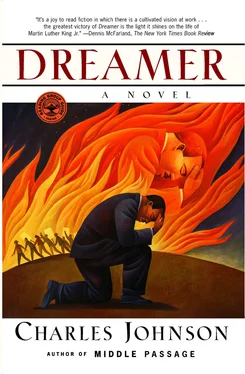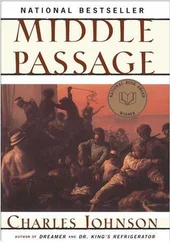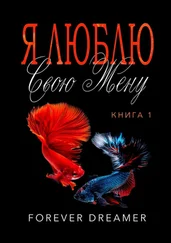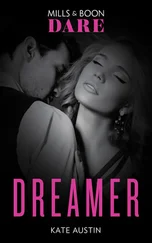Yet I wondered if the legal and histrionic tactics of the Movement might one day prove more costly than anyone imagined. One could not hold a referendum for racial justice in America, a vote, because — as everyone knew — whites would surely cast their ballots for, at best, gradual change. And in the South for no change at all. What the nation needed in the early 1960s was to be electrified by having the evils at its core uncovered. The minister was a master at that. And at enlisting the powers of the federal government to accelerate the end of American apartheid. But I wondered: Would the wounds uncovered ever heal? At times I felt uncomfortable with the SCLC’s and NAACP’s reliance, their dependency and complete faith in Washington’s clout, the protection it offered black people — but at what price? Nothing, my mother once told me, came without a price; there was always a trade-off of some kind, even though one might not see it clearly in the beginning. Mightn’t whites come to perceive Negroes as no longer a victimized class but a privileged one, thus leading to a resentment and a lack of respect and racial disdain greater than anything witnessed during the era of Jim Crow? Mightn’t too much reliance on the federal government, even in private affairs such as rearing a family, lead to the inability to do for oneself, unhampered by bad laws, that was the Movement’s original purpose?
I switched channels and found an all-music station playing the Supremes, then looked back at Amy. She slept with one finger brushing her lips, and as I looked at her I felt lost. Brown freckles ran right across her nose, and since she lay facing the east, sunlight brought out highlights in her hair. She seemed to grow quieter and sleep more deeply with each county we put between ourselves and the dislocating spirit of the city. Back there, her apartment had five locks on the door. On top of that, she lived in a section of town so crimeridden that she was obliged to padlock every door inside too. It was a frightful way to live, in fear, barricaded behind your door each evening, wondering if a neighbor might kill you in your sleep, and it was that dreadful situation the minister hoped to change.
I knew his odds were bad.
The nonviolent Movement drew successfully from the ranks of the black middle class, students at Fisk, and liberal whites in its early days, but stalled and sputtered in poor, grassroots communities. King himself subjected it to this criticism, saying voting rights and integrated lunch counters cost the nation nothing. The new campaign — class struggle — would indeed be costly. Yet over and over he insisted that the Movement needed to wage war on two fronts. First, changing the souls of men so that they not only protested for peace but in themselves were peace embodied, loving in even life’s smallest affairs. And, second, he called for changing society so the soul might have a field in which to flourish. Neither front, he said, could be ignored, for one reinforced the other. Tremendous effort had gone into the second theater of battle, I thought. Far less into the first. So little, in fact, that as I steered south through the land of Lincoln, down a steaming highway dotted with roadkill between Springfield and Centralia, as Amy and Smith slept, my thoughts reached back to a speech the earlier “reformist” King delivered in Chicago, one that challenged and chided me when I was a freshman at Columbia College in 1964. That speech had looked inward, not out. It emphasized being fully alive in the present, which I found appealing, because didn’t dwelling on the Promised Land or heaven or the Workers’ Paradise postpone full immersion in life to the distant future, so that since the Civil War black people could never be at peace in the present, comfortable with the past, and were waiting, always waiting, for a day of redemption that forever receded like the horizon? Two years earlier King had not spoken that way. He’d said, “When you are behind in a foot race, the only way to get ahead is to run faster than the man in front of you. So when your white roommate says he’s tired and goes to sleep, you stay up and burn the midnight oil.” He spoke from experience, having maintained only a 2.48 grade point average at Morehouse College; by the time he left Crozer Seminary he was student body president and class valedictorian. He talked of his father — who, like old Joe Kennedy, was not an easy father to have — a poor, barely literate boy whose grandfather Jim Long had been used by his master to breed slaves; Daddy King often said, “I came from nowhere.” At age fifteen, he could read but not write. Just the same, determination to win the hand of a Spelman seminary student named Alberta Williams, and to rise in Atlanta’s black world, riveted him to study, “until I was falling asleep saying my lessons to myself.”
But Chaym Smith was clearly not Daddy King. And he, Amy, and I were the most unlikely of teams with a task so impossible that the thought of it kept my Protestant stomach perpetually cramped, knotted, and queasy from the moment King asked us to work together.
Beside me, Smith — our Melchizedek — dozed. I noticed that the muscles around his mouth and eyes had relaxed, and for the time he was submerged in himself, in that depthless place of dreamless sleep where we spend a third of our lives, he looked serene, almost cherubic, the contours of his cheeks rounded, all the tension in his normally furrowed brow gone, as if a fire somewhere in him had been extinguished. In dreamless sleep, a king was not a king, nor a pauper poor; no one was old or young, male or female, cursed or blessed, educated or ignorant, sinner or saint. (And even in our dreams, there was no apartheid, no segregation between black and white.) This was the face, very Apollonian, I associated most closely with the minister in old photos I’d seen of him when he was a boy who loved to sing “I Want to Be More and More Like Jesus” and sat rapt with attention behind the pulpit of Atlanta’s Ebenezer Church and his father stood ramrod straight, preaching with one finger pointed toward heaven. Or in other pictures from 1951 when he happily posed, like a prince who knew a great kingdom awaited him, beside the stately presence of his mother, with just the slightest sprinkling of pimples on his forehead and one lone pustule on his left cheek. Smith awoke, caught me glancing sideways at him, and smirked.
“Like what you see, eh?”
“I’m sorry,” I said. “I didn’t mean to stare. It’s just that you look so much like him. Yet you’re so different. Chaym, I didn’t know you were a painter—”
“Yeah,” he yawned, now looking very Dionysian. “I painted some when I was institutionalized. The doctors thought it’d help me heal. As you can see, I ain’t no famous beauty, nobody’s gonna mistake me for Harry Belafonte, but I was hoping that if I created something beautiful, I could offer that to others. Something that would live after I was gone. A li’l piece of me, you know, that’d endure. Problem was, I was second-rate. Naw, I didn’t say bad. What I did — everything I’ve done — was good. Thing is, being just good don’t get you to heaven. And I’m just too mediocre for hell. God don’t like near misses. Runner-ups and also-rans. Second-best means no banana. Purgatory, I been thinkin’, was designed for people like me … and you.”
“Me?”
“That’s right. Who’s your daddy?”
“I … don’t know.”
“That’s what I figured. You like most of the rest of us. Brothers, I mean. You’re illegitimate. No father prepared the way for you. You want to be among the anointed, the blessed — to belong . I saw that in you the moment we met. Nothing’s worked for you, I can see that. You ain’t never gonna have fame or fortune. Maybe not even a girl. I’ll bet you ain’t had pussy since pussy had you. When you die, it’ll be like you never lived. That’s why I said I think I can help you.”
Читать дальше












